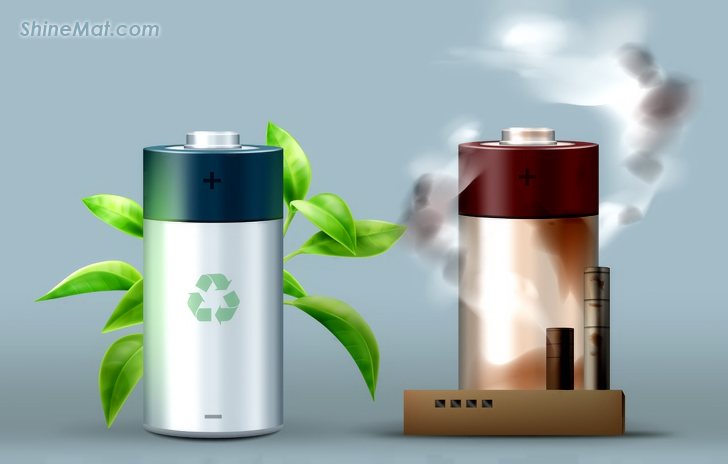In childhood, you might have changed the battery of a wall clock twice a year, or the battery of a television remote control a couple of times a month. Even though those days are gone, the use of batteries has not diminished. Now, from battery-operated vehicles on the road to the use of various technological products, dependence on batteries continues.
Researchers have been working for many years to increase the charge and power of batteries. Recently, scientists have successfully created all-solid-state lithium-sulfur batteries by combining lithium and sulfur.

Car manufacturers have long been talking about the necessity of advanced batteries to meet the increasing global demand for electric vehicles. It is believed that all-solid-state lithium-sulfur batteries can play an effective role in this regard. Researchers at McGill University and the University of Quebec in Montreal have developed a new method for creating affordable batteries. This method allows the battery to hold a lot more charge and be rapidly recharged.
Researcher Justin Kim says that compared to conventional lithium-ion batteries, the new type of battery saves almost 10 times the energy. The power density of sulfur and lithium metal is theoretically 2600 watts/kilogram, which is several times more than that of ordinary batteries.
By using sulfur in this type of rechargeable battery, the energy retention capacity of the battery is increased. Sulfur is abundant, easily accessible, and environmentally friendly. This battery-dependent electric vehicle will have a relatively lower cost. Once charged, this battery will play a significant role in driving long distances in the future.
This new battery will bring about fundamental changes in various new fields, such as electric vehicles and electric aviation. The innovative technology of this new type of battery has made a tremendous breakthrough. Designing a long-lasting and high-energy-density battery is a very complex task. Making this new type of battery is also a complex task.
Scientists are already researching various types of sulfur batteries. One such research result has been published in the journal Nature Communications. The research team hopes to develop a battery for daily use within the next 5 to 10 years.
Researchers have been working for many years to increase the charge and power of batteries. Recently, scientists have successfully created all-solid-state lithium-sulfur batteries by combining lithium and sulfur.

Car manufacturers have long been talking about the necessity of advanced batteries to meet the increasing global demand for electric vehicles. It is believed that all-solid-state lithium-sulfur batteries can play an effective role in this regard. Researchers at McGill University and the University of Quebec in Montreal have developed a new method for creating affordable batteries. This method allows the battery to hold a lot more charge and be rapidly recharged.
Researcher Justin Kim says that compared to conventional lithium-ion batteries, the new type of battery saves almost 10 times the energy. The power density of sulfur and lithium metal is theoretically 2600 watts/kilogram, which is several times more than that of ordinary batteries.
By using sulfur in this type of rechargeable battery, the energy retention capacity of the battery is increased. Sulfur is abundant, easily accessible, and environmentally friendly. This battery-dependent electric vehicle will have a relatively lower cost. Once charged, this battery will play a significant role in driving long distances in the future.
This new battery will bring about fundamental changes in various new fields, such as electric vehicles and electric aviation. The innovative technology of this new type of battery has made a tremendous breakthrough. Designing a long-lasting and high-energy-density battery is a very complex task. Making this new type of battery is also a complex task.
Scientists are already researching various types of sulfur batteries. One such research result has been published in the journal Nature Communications. The research team hopes to develop a battery for daily use within the next 5 to 10 years.

Post a Comment
Please DON'T spam here. Spam comments will be deleted just after our review.